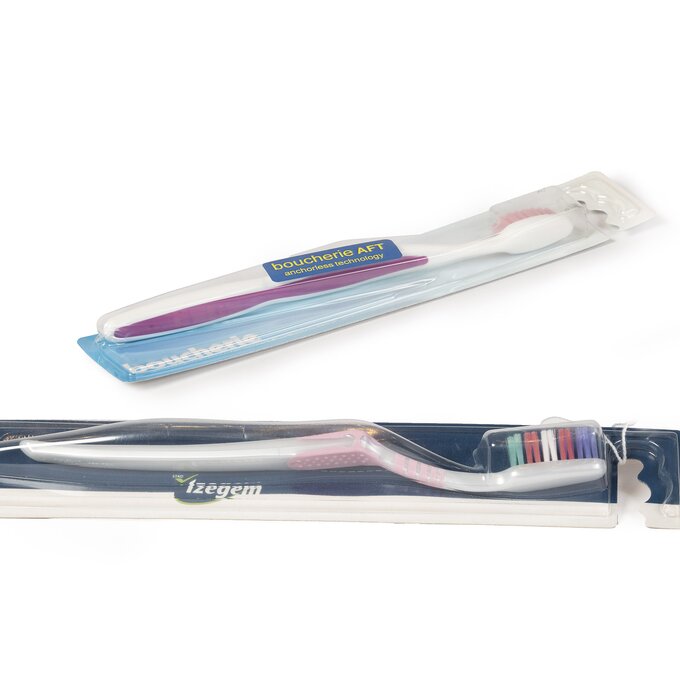Hof der dingen - Toothbrush of Boucherie

Wudder zin de mannen van Izegem, stad van bustels en skoenen – these are the worlds of the Izegem hip-hop band ’t Hof van Commerce. Yes- we’re quite aware that these words might not make any sense to you whatsoever. What they’re singing is: “We’re the men from Izegem, the city of brushes and shoes”. And they’re not wrong, because Izegem has a centuries-old reputation for crafting brushes and shoes.
Back in the early 19th century, several family-run businesses grew into full-blown factories with international reach. At its peak, about a hundred years ago, around 3,000 inhabitants of Izegem were employed in the brush industry. By the 1850s, the industrial revolution in Belgium had kicked in, and mass production became the norm. In 1930, the global economy took a severe hit, and so did the city of Izegem. The number of brush makers severely dropped from 2,750 in 1930 to 1,375 just before the start of World War II.
Whereas the craft of shoemaking in Izegem began to fade, the brush makers proved themselves to be incredibly resilient. They adapted, focusing on niche markets and diversifying into everything from wooden hairbrushes to classic sweeping brushes. It was their flexible mindset and perseverance that kept their businesses alive, allowing them to weather the economic storms and continue to thrive.
Today, many companies in Izegem continue to dominate the brush industry. One of them is Boucherie, a brush machine manufacturer. In 1928, young Izegem-born Gerard Boucherie had gathered a wealth of experience working as a mechanic at various companies. He decided to take the risk and start his own machine-building business, first operating out of a confined space in his mother’s house. Talking about starting small: Gerard had to get his first machine out of the door by breaking open a piece of the façade of the house… There’s no record on how his poor mother took the news, but we assume he made up for it later by becoming a household name in the brush industry.
He proved himself to be quite the savant and went on to become one of the most innovative manufacturers in the industry. With his innovative designs, he helped brush manufacturers speed up and streamline the production process. By 1960, he was refining machines for the mass production of plastic brushes. He developed the first experimental toothbrush machine in the late 1970s. The success was so immense that he shifted his focus entirely to specialise in this niche field.
Boucherie is now the global leader in this specialised field, thanks to its continuous efforts to optimise processes and innovate. Almost half of all toothbrushes worldwide are made using Boucherie machines.
A special thanks to the museum Eperon d’Or in Izegem for sharing this inspiring story alongside this toothbrush.